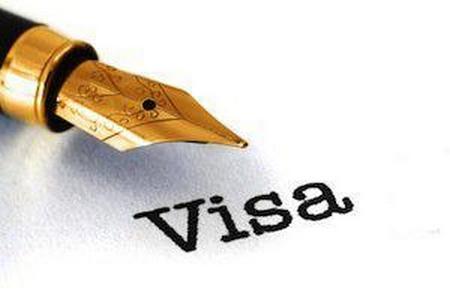Student Visas After School: Adjusting Status
 It is extremely common for a non-citizen to come into the United States on one type of visa, and then seek to adjust status to another. One of the most common visa types for this is the F-1, designed for students. Students find employment, get engaged, and experience other life events that necessitate a change of status.
It is extremely common for a non-citizen to come into the United States on one type of visa, and then seek to adjust status to another. One of the most common visa types for this is the F-1, designed for students. Students find employment, get engaged, and experience other life events that necessitate a change of status.
Can I Adjust Status in the U.S.?
Not everyone may adjust their status while remaining in the United States, though most can. People who hold certain entry permits must return to their home country before adjusting—for example, those on the visa waiver program, or those holding transit visas. J1 and M1 holders (foreign exchange visitors and vocational students, respectively) may adjust to certain other statuses, but not others.
F1 visa holders, and most other nonimmigrant visa holders, may adjust status while still in the United States, and they most often do so either via family-based immigration or with an employer’s assistance. Generally, if one was lawfully admitted to the country under an appropriate status, and that status is still valid, you may apply to adjust via an I-130 petition submitted by your citizen relative (a parent, spouse or adult child).
However, it is not a good idea to act as if the adjustment has been granted until you receive word that it has been granted. For example, it is illegal for you, as an F1 visa holder, to file an I-130 to bring over your family members. You must wait until you are officially approved for permanent residency to begin that process.
Adjusting With Help From an Employer
While a significant portion of immigrants adjust their status from F-1 to permanent resident by marrying a U.S. citizen or having a U.S. citizen family member file on their behalf, the other common avenue for doing so is to have an employer help you file. It is commonplace for F1 visa holders to land jobs with U.S. companies. If this happens, they will often assist you in changing your status.
There are two major ways to adjust one’s status on the basis of employment. The first is via a Labor Certification (LC), filled out by the employer with the U.S. Department of Labor. Once an LC is approved, then the employer completes an immigration petition on your behalf. The timing of this can be difficult for some people, however, as the act of filing an LC telegraphs your intent to immigrate. This can sometimes jeopardize your existing F1 visa.
The second way to adjust one’s status to that of a permanent resident is less often taken by F1 holders, but it does happen; you may file for an EB-1 visa or ‘first preference’ employment visa. This is a difficult one to obtain because you must be able to prove that you have ‘extraordinary’ or ‘outstanding’ ability, which is understandably not easy.
A Knowledgeable Attorney Can Help
The conclusion of your studies can feel like a door closing in life. However, a new opportunity appearing should not be cause for alarm or distress. If you are looking to adjust status, a skilled U.S. immigration lawyer can smooth the process out for you. The dedicated DuPage County immigration attorneys at Mevorah & Giglio Law Offices are happy to help you determine the best path for you, and will work hard to get you there. Contact us today via our website or at 630-932-9100 for an initial appointment.
 English,
English,
 Spanish,
Spanish,
 Polish,
Polish,
 Urdu
Urdu













 Make a Payment
Make a Payment



